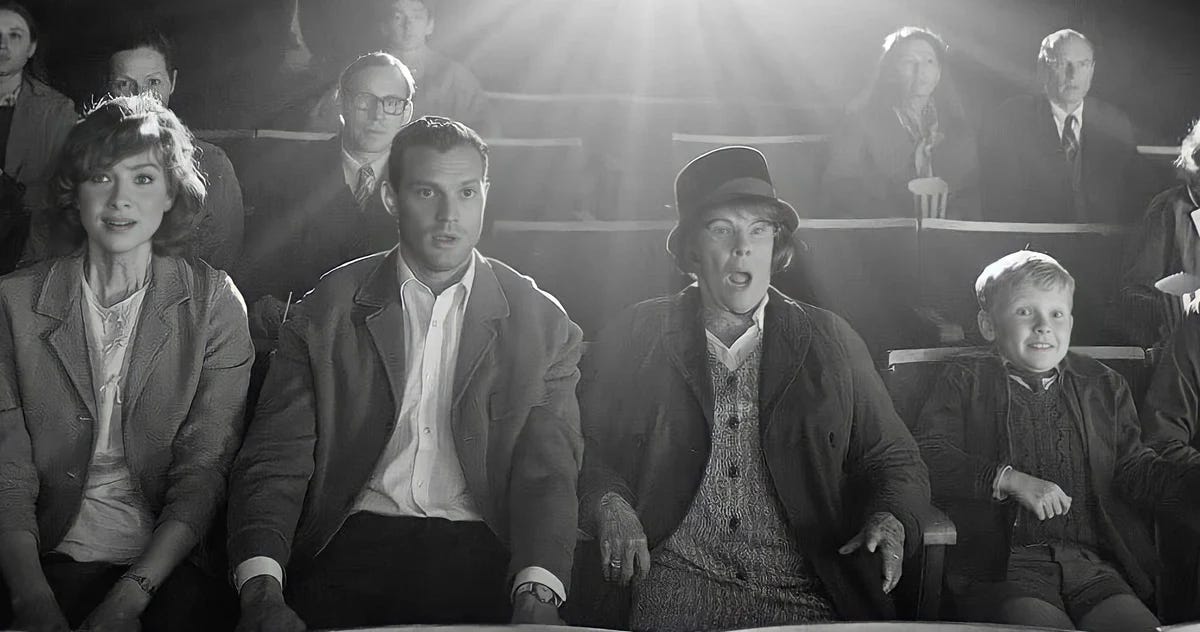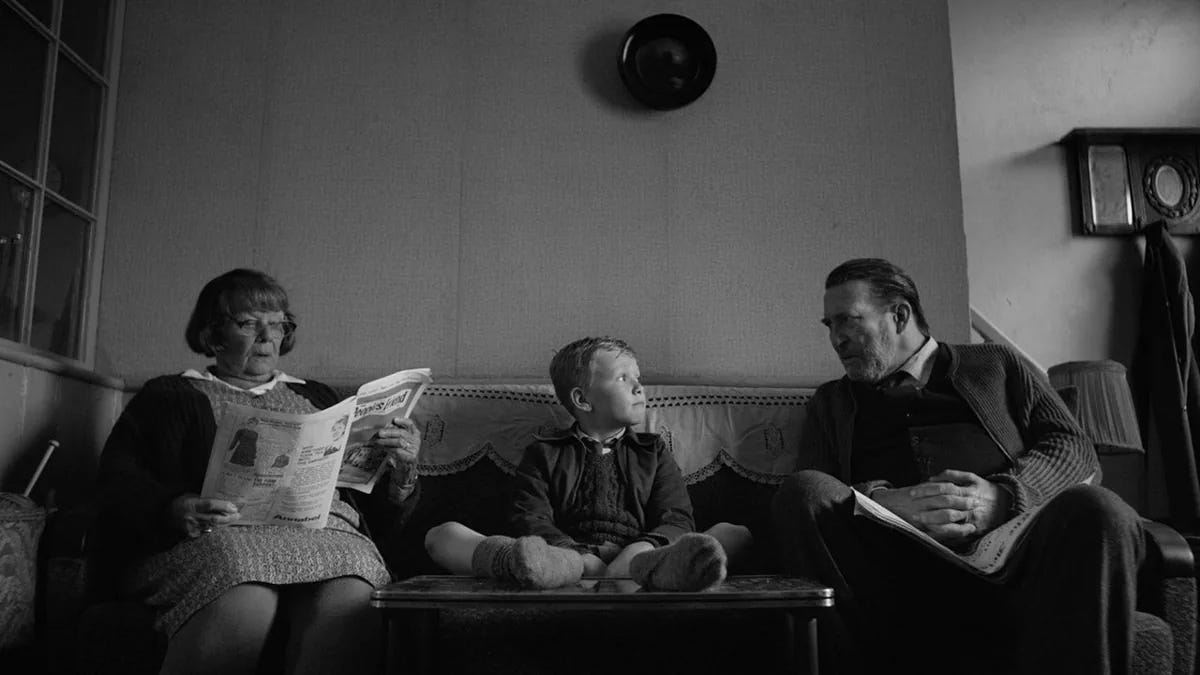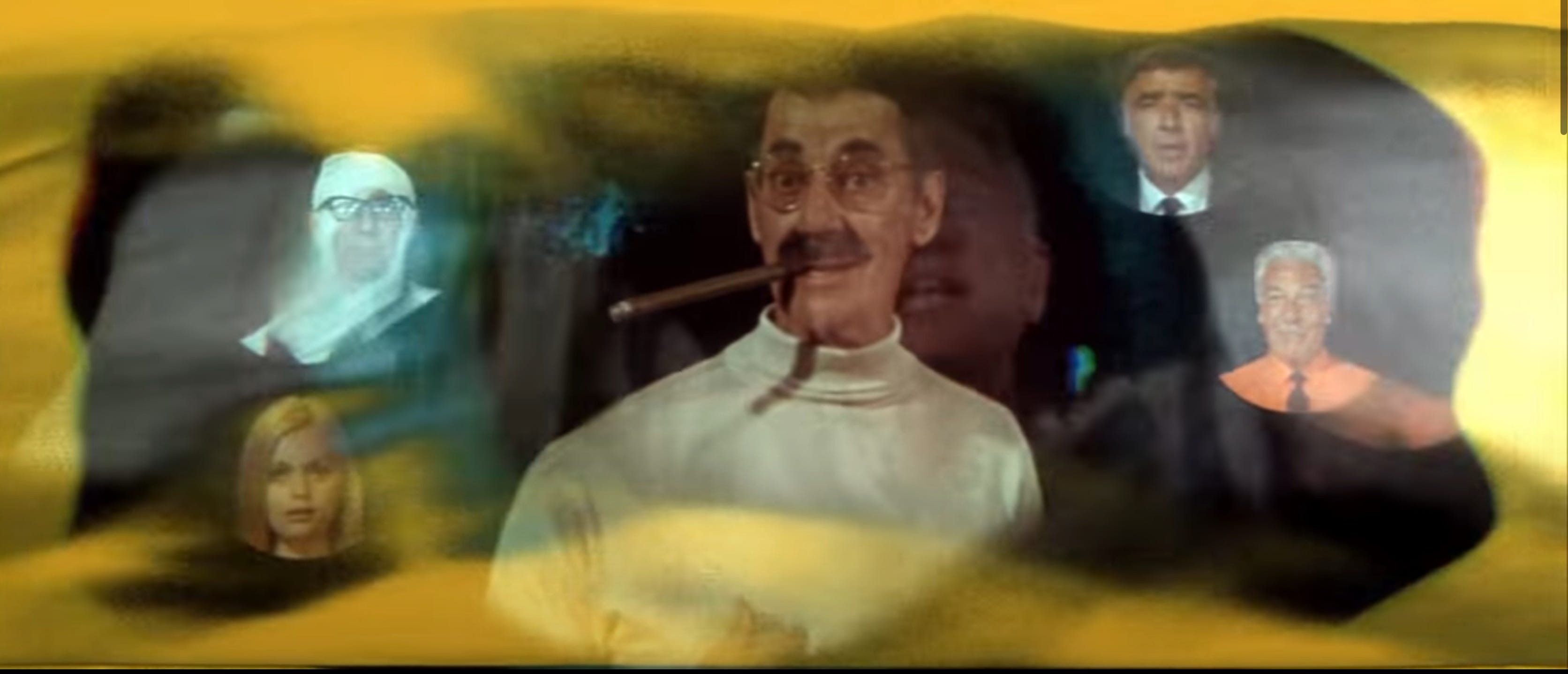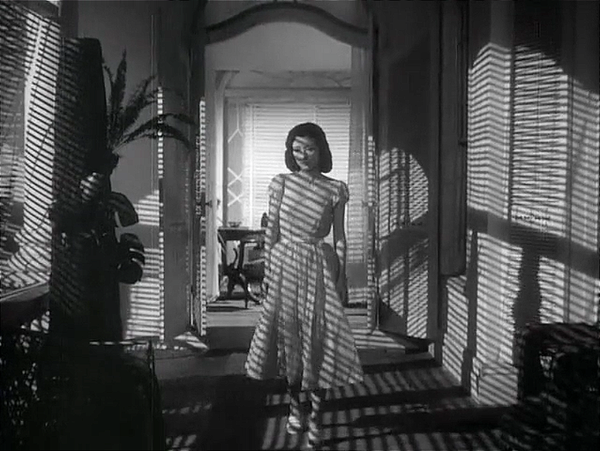When Irish Sighs Are Smiling
"Belfast" arrives in theaters, "Mayor Pete" comes to Amazon Prime, and "Skidoo" melts your brain on Turner Classics

The Nut Graf: Kenneth Branagh’s “Belfast” (in theaters) is a sweet, familiar memory play of the director’s youth (**1/2 stars out of ****). “Mayor Pete” (on Amazon Prime Video) gives viewers a bustling backstage tour of the Buttigieg campaign (*** stars out of ****). For fans of deep-dish Hollywood derangement, “Skidoo” is on TCM (some movies exist beyond a rating system).

It’s something of a mystery why “Belfast” has been getting touted as this year’s front-runner for Oscar glory since it debuted at the Telluride and Toronto film festivals in September – or maybe it’s not a mystery at all. The movie, which opens in theaters today, is fine, perfectly fine: a memory play that captures the childhood experiences of its writer-director, Kenneth Branagh, during the internecine warfare of Northern Ireland in the late 1960s. Aside from the novelty of its setting – which is considerable – much of “Belfast” feels comfortably recognizable, from the wide-eyed boy (Jude Hill) at its center, to the father (Jamie Dornan) who’s too often away, to the mother (Caitriona Balfe) struggling to keep her family together amidst partisan chaos, to the crotchety, adorable grandparents doling out their life lessons (Judi Dench and Ciaran Hinds, both wonderful).
We’ve been here before, as long ago as “How Green Was My Valley” (1941) and as recently as “Minari” (2020), with John Boorman’s London Blitz memoir “Hope and Glory” (1987) a particularly relevant midpoint. Should that matter? Isn’t everyone’s story uniquely their own, even if the elements are similar to everyone else’s? Yes, but the trick is to fool audiences into feeling they’re experiencing it all for the first time through the senses and sensibilities of a young protagonist, and in that Branagh is only partly successful. The most vivid scene in “Belfast” may be its first, as a group of children playing war in the street is suddenly interrupted by the real thing: A violent mob of Protestants come to break Catholic windows and heads in a previously peaceful mixed neighborhood. It’s a beautiful and frightening piece of filmmaking, and it feels lived rather than remembered.

Otherwise, “Belfast” breaks no new ground, and it does so in a way that wins awards. It adorns time-worn characters and situations with artistic touches (Haris Zambarloukas’s black-and-white cinematography) and attractive stars (Dornan and Balfe as the parents are both very good and both improbably gorgeous). It will warm the hearts of a lot of people, including a lot of Academy voters. Is it the best picture of the year? A) Too early to tell, and B) No, but, really, it’s fine. (My only serious quibble is with a soundtrack of wall-to-wall Van Morrison chestnuts that jolt a viewer out of the movie with their familiarity and that sit uneasily next to the singer’s unhinged recent song-rants such as “No More Lockdown” and “They Own the Media.”)
“Mayor Pete,” a new documentary premiering on Amazon, isn’t exactly fly-on-the-wall Fred Wiseman stuff. Director Jesse Moss – he made the excellent “Boys State,” one of last year’s very best – is a fan of Pete Buttigieg, and he assumes you are too. That leads the film, a behind the scenes tour of Buttigieg’s 2020 Presidential campaign, more than once into the valley of the shadow of agit-docs. When Moss scores a montage of the candidate’s talk show appearances to a triumphalist pop song, reader, I flinched.

Still, the movie’s worth a look for the access it provides to a fascinating figure who’s hardly done with public life. Buttigieg seemed a quixotic figure at the start of the 2020 campaign season, a small-city mayor gunning for the big prize with only the revived fortunes of South Bend, Indiana, and his own unique mix of demographic bona fides (Iraq War veteran, gay) to recommend him. His appealing directness and ability to engage in depth on any issue allowed him to catch on with the public, at least for a handful of news cycles, and he won the Iowa caucuses without ever gaining the momentum necessary to, in his words, “achieve escape velocity.”
It was a remarkable run, and Moss’s cameras are there from the start, capturing a campaign whose heartland decency comes as a minor shock. “Be very, very kind and be good listeners — we want to reflect Pete’s values,” campaign manager Mike Schmuhl tells his troops. By contrast, communications director Lis Smith is a more familiar “in it to win it” type, urging the candidate to simultaneously toughen up and be authentic. (“He’s the fucking Tin Man up there,” she sighs in exasperation during one debate prep.)
Ty Burr’s Watch List is a reader-supported newsletter. Both free and paid subscriptions are available. Those who want to support my work are encouraged to take out a paid subscription.
Right there is the paradox of political life and that’s what gives “Mayor Pete” its unique spin: We have a front row seat while a charismatic policy wonk – a man who seems extremely comfortable in his skin – struggles with marketing himself as a product that America might want to buy. Is it possible to sell yourself as authentic and remain authentic? Of course it isn’t, and Buttigieg knows it. “How do you master the game without it changing you?” he asks Moss at one point – it’s a rhetorical question but it’s not – and one senses that his drive to be sincere, to be true to himself, has developed at great cost over many years.
During one appearance at an LGBTQ+ fundraiser, Buttigieg speaks of the self-loathing of his closeted youth, saying that “if you had told me where the gay was in my body, I would have cut it out with a knife.” It’s a unexpectedly dark admission from a man known for his calm, and it rattles the candidate’s husband, Chasten Buttigieg, to the point where he asks backstage whether Pete was implying he was suicidal. In these and other scenes, “Mayor Pete” reveals a deep reserve behind Buttigieg’s Main Street unflappability, and the film is honest enough to show how that reserve can at times come across as a civic failure, in a town hall full of Black South Bend constituents furious over the shooting death of a Black man, Eric Logan, by a white officer.
All of this is grist for thinking about Pete Buttigieg in the future, in which he will almost certainly have a public role. (He’s currently serving as Transportation Secretary ion the Biden administration.) Also, I haven’t mentioned how crucial Chasten Buttigieg is to both the campaign – where he’s an active force at fundraisers and political appearances – and to the movie, for which he functions as the candidate’s emotional translator. The Tin Man had a heart, remember, and this man knows where it is. I don’t know whether I’ll someday pull the lever for Pete Buttigieg, but Chasten Buttigieg has my vote for first husband.

DVR Alert: Wanna see Jackie Gleason on an acid trip? Groucho Marx as a gangster named God? Carol Channing doing the frug in her underwear? Otto Preminger’s “Skidoo” (1968) hits Turner Classics at 2 a.m. Saturday morning, and while this legendary fiasco has its haters and cult defenders, to me it’s a movie that exists far beyond such trifling categories as “Good” or “Bad.” What it really represents is an aging studio generation’s attempt to latch onto the Youth Movement hippie thing and make a movie for “the kids,” to the point of hiring Dr. Timothy Leary for the trailer (below). Ironically, by missing the boat on every conceivable level – although I’m convinced that someone involved had to been on LSD at some point – Preminger ended up with a work of 24-karat Hollywood Dada. You can also stream “Skidoo” with ads on YouTube, and I hereby direct you to the Gleason trip sequence, in which he’s dosed by a young Austin Pendleton and is visited by hallucinations of Mickey Rooney, Peter Lawford, Cesar Romero, and Groucho. Thank me or curse me later.
If you enjoyed this edition of Ty Burr’s Watch List, please feel free to share it with friends.
If you’re not a paying subscriber and would like to sign up for additional reviews and to join the discussions, here’s how:
If you’re already a paying subscriber, I thank you for your generous support.





